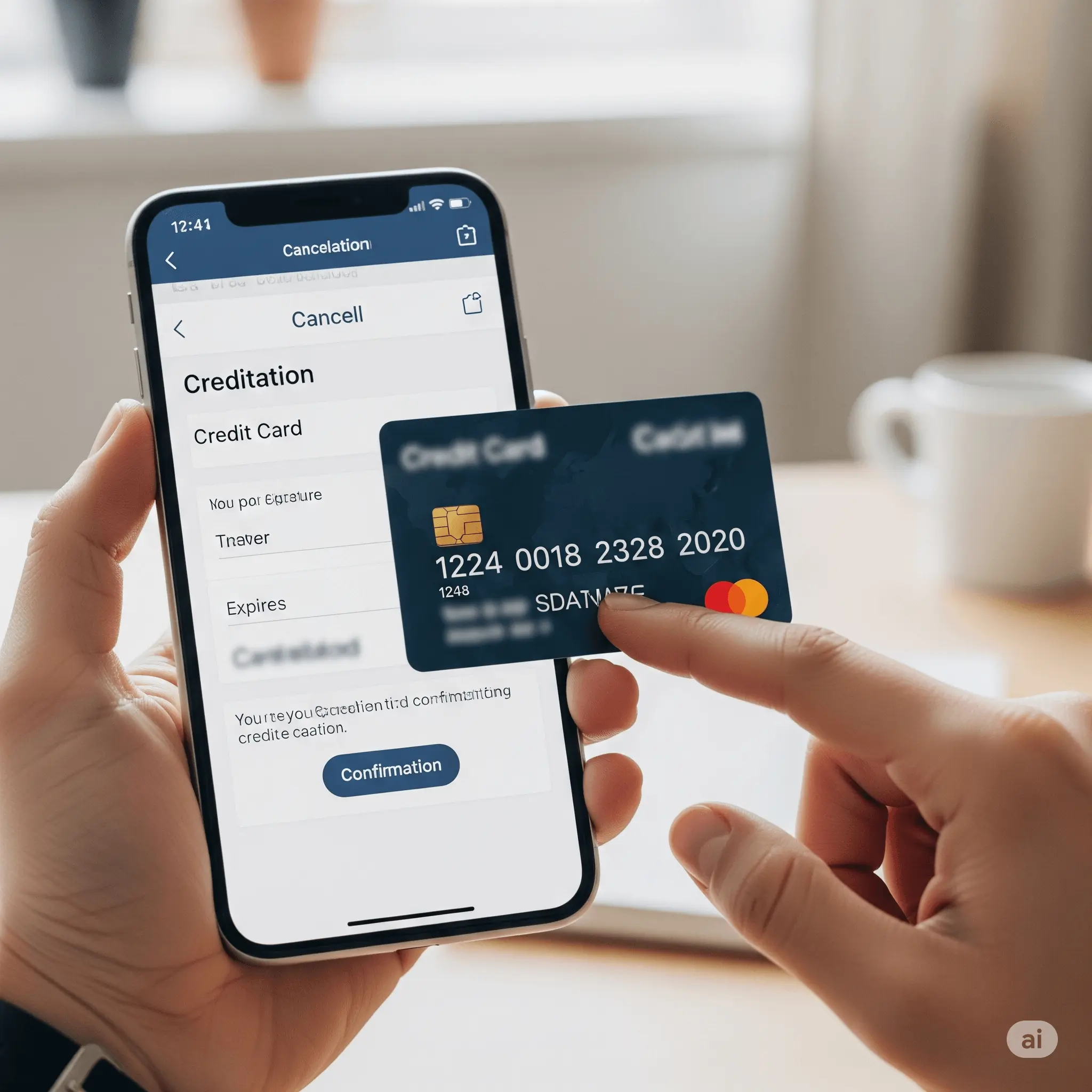Cancelling Your Credit Card: Step-by-Step Guide for Canadians
Published on June 17, 2025 | By WealthFusions Finance Team

Cancelling a credit card might seem simple, but doing it incorrectly can hurt your credit score or lead to unexpected fees. Whether you want to close a card you no longer use, avoid annual fees, or reduce debt temptations, this detailed guide explains the best practices to cancel your credit card safely in Canada. You’ll also find practical tips, impact on credit, and answers to common questions so you can make informed decisions without stress.
1. Understand When and Why to Cancel Your Credit Card
Before cancelling, ask yourself:
- Is the card costing more than it benefits? Annual fees above $100 with low rewards might not be worth it.
- Are you managing multiple cards and want to simplify?
- Have you found a better card with superior rewards or lower interest?
- Do you want to protect your credit score by reducing unused credit? Sometimes keeping an old card open helps your credit utilization ratio.
Tip: If the card has a balance, pay it off fully before cancelling. Partial balances may continue to accrue interest.
2. Check Your Credit Score and Credit Utilization Ratio
Your credit score depends partly on your credit utilization — the percentage of your total available credit you’re using.
Example: If you have two cards, one with $5,000 limit and one with $10,000 limit, cancelling the $10,000 limit card can increase your utilization ratio, potentially lowering your credit score.
Data: According to Equifax Canada, credit utilization accounts for approximately 30% of your credit score calculation.
Recommendation: Use a free credit score service like Credit Karma Canada before and after cancelling to monitor changes.
3. Redeem Your Rewards Before Cancelling
Many credit cards accumulate points, cashback, or miles. Once the account is closed, you will lose all unredeemed rewards. Steps to redeem:
- Log in to your online account or call customer service.
- Redeem points for cash, gift cards, travel, or statement credits.
- Check if points transfer to partner programs (e.g., airline miles).
Example: TD Aeroplan Visa users can transfer points to Aeroplan Miles, but only if the account is active.
4. Pay Off Your Balance Completely
Ensure your card balance is $0 before cancelling. Partial payments mean the account stays open until fully paid, and interest continues accruing.
Use online banking or phone support to verify the exact amount needed to close the balance. Don’t forget pending transactions.
5. Contact Your Card Issuer to Cancel
Most Canadian banks require a phone call to cancel your credit card. Here’s a recommended approach:
- Call customer service during business hours.
- Have your card and personal info ready.
- State clearly you want to cancel the card.
- Ask for a confirmation number or email for your records.
- Inquire about any final fees or outstanding amounts.
Note: Some banks may try to retain you by offering incentives—be firm if you’ve decided to cancel.
6. Confirm Account Closure in Writing
Request written confirmation via email or mail. Keep this for at least 12 months in case of disputes.
Check your next credit card statement or online portal to ensure the account shows “closed” or “account closed by customer.”
7. Update Automatic Payments and Linked Accounts
Before cancelling, switch recurring payments like Netflix, utilities, or subscriptions to another card or payment method to avoid service interruptions or late fees.
Make a list of all services linked to the card to update promptly.
8. Monitor Your Credit Report Post-Cancellation
After 30-60 days, pull your credit report from major bureaus (Equifax, TransUnion) to verify the card status is correctly reported as “closed” with zero balance.
This ensures your credit score is accurate and avoids unexpected credit issues.
Conclusion: Cancelling Your Credit Card the Smart Way
Cancelling a credit card in Canada is straightforward but requires careful steps to protect your credit score and rewards. Always:
- Pay off your balance completely.
- Redeem rewards before closing.
- Contact your issuer for formal cancellation.
- Update automatic payments.
- Monitor your credit report after cancellation.
Need personalized advice on credit management or card selection? visit our blogs today!
Frequently Asked Questions (FAQs)
- 1. Will cancelling my credit card hurt my credit score?
- It can if it significantly reduces your total available credit and increases your credit utilization ratio.
- 2. Can I cancel my credit card online?
- Most Canadian banks require a phone call, but some credit cards may allow online cancellation.
- 3. What happens to my rewards points after cancelling?
- You typically lose all unredeemed points. Redeem them before cancelling.
- 4. How long does it take to cancel a credit card?
- Cancellation is immediate once confirmed, but the account may appear on credit reports as “closed” for several months.
- 5. Should I close old credit cards?
- Keeping old cards open can improve credit age and utilization, but close them if fees outweigh benefits.
- 6. Can cancelling a credit card affect my loan or mortgage approval?
- Potentially, as lenders review your credit score and debt ratios.
- 7. What if I have a balance when cancelling?
- The issuer requires you to pay off the balance. Interest will continue until paid.
- 8. How can I dispute an incorrect “open” card after cancellation?
- Contact the issuer immediately and file a dispute with credit bureaus if necessary.

